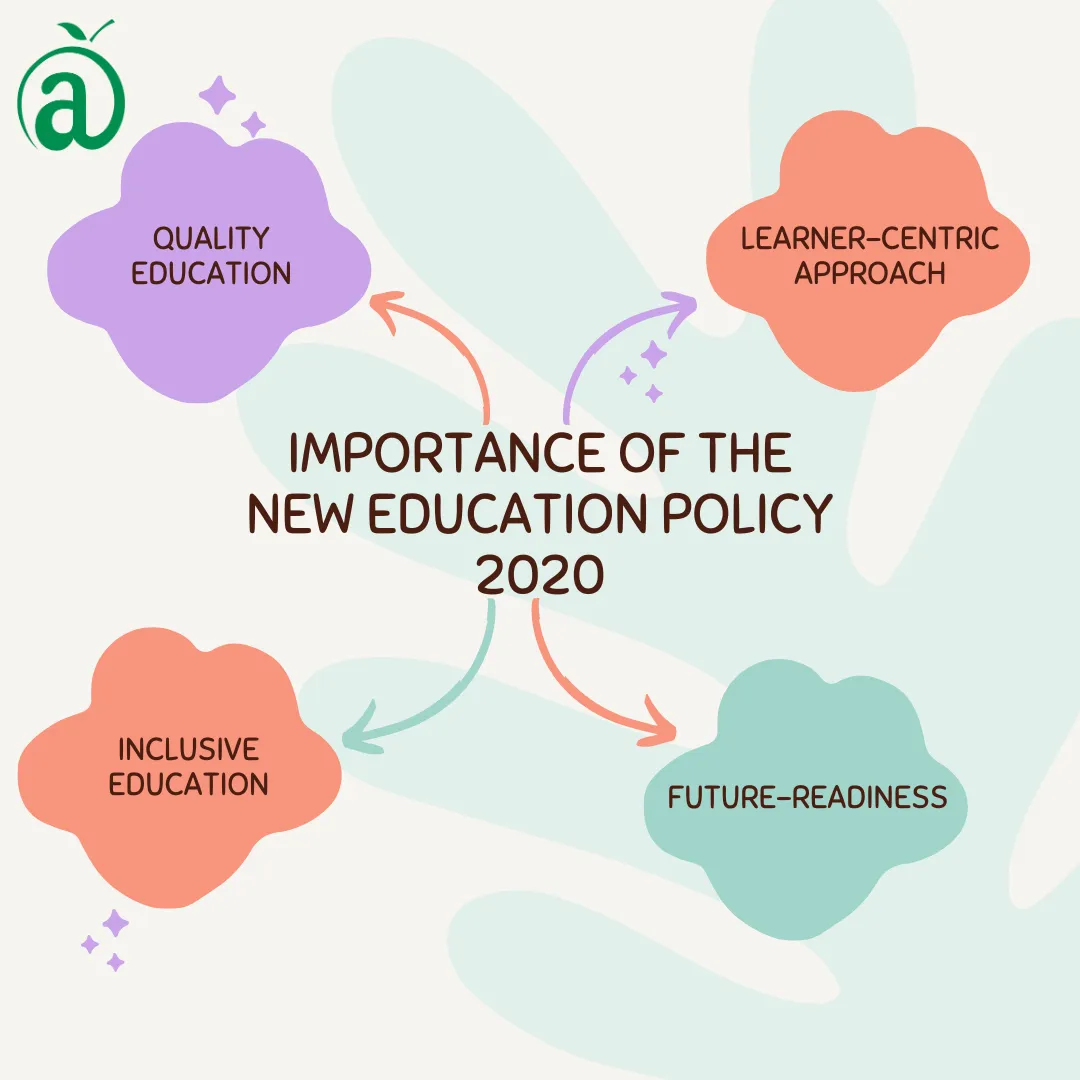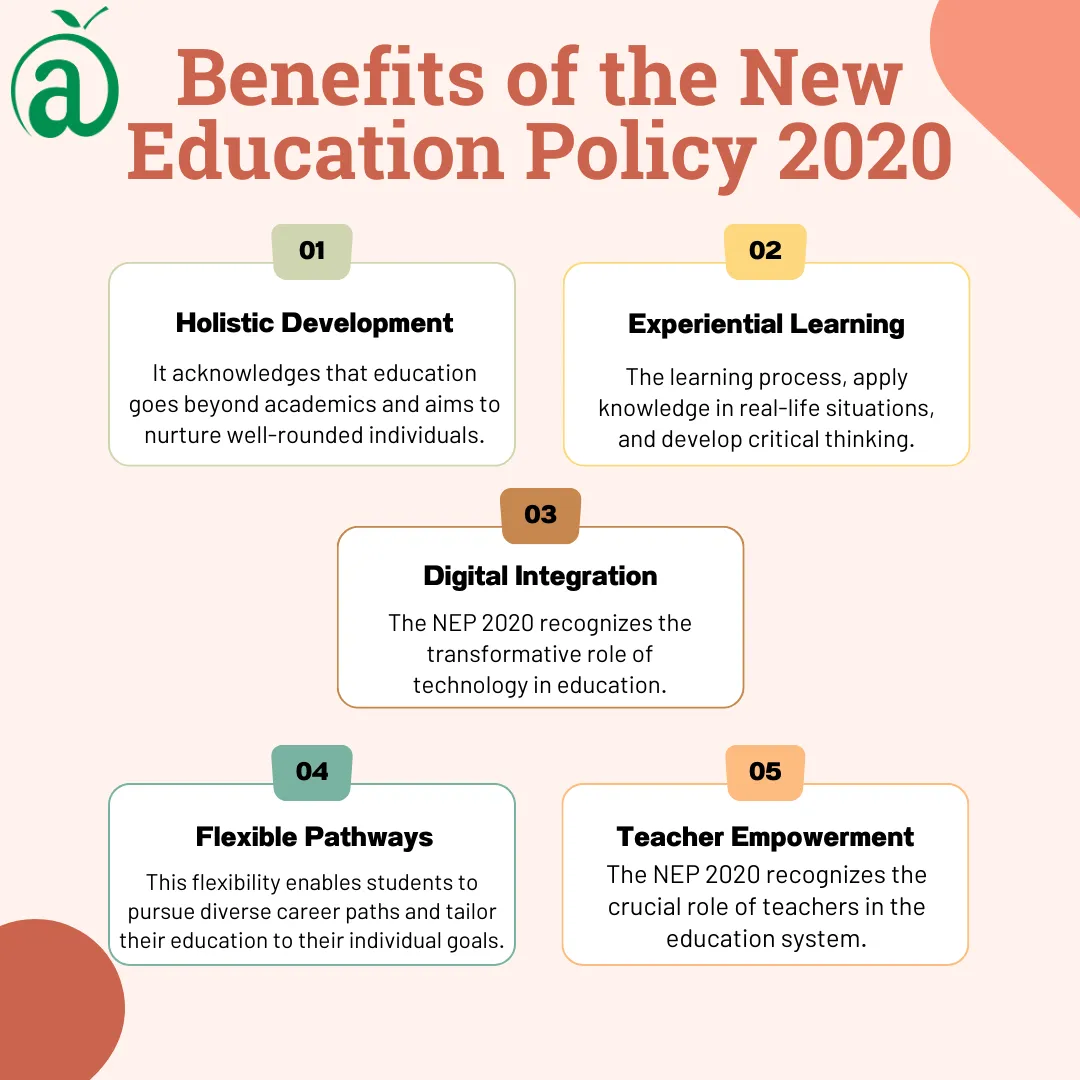
The National Education Policy 2020 plays a big role in setting the course for educational reforms as it addresses the shortcomings of the current education system. Students will acquire essential skills along with a deep understanding of Indian heritage and values. This will enable them to prepare for the modern world's complexities. It also focuses on making education affordable and accessible for everyone. The policy also ensures that students are equipped to take on the future with better job opportunities and preparedness.

a. Learner-Centric Approach: The NEP 2020 places learners at the centre of the education system, focusing on their individual needs, interests, and abilities. It recognizes that students learn best when their learning experiences are personalized and meaningful.
b. Future-Readiness: The policy aligns education with the needs of the future, preparing students to thrive in a rapidly changing world. It emphasizes the development of adaptable skills and a deep understanding of concepts, enabling students to navigate the challenges of the future.
c. Quality Education: The NEP 2020 prioritizes quality education by setting standards for curriculum design, teacher training, and assessment practices. It promotes excellence and innovation in teaching and learning methodologies.
d. Inclusive Education: The policy addresses the gaps in access to education and promotes inclusivity. It recognizes the diverse learning needs of students and aims to provide equal opportunities for all learners to excel.

Benefits of the New Education Policy 2020:
a. Holistic Development: The NEP 2020 fosters the holistic development of students by integrating co-curricular activities, sports, arts, and vocational education into the curriculum. It acknowledges that education goes beyond academics and aims to nurture well-rounded individuals.
b. Experiential Learning: The policy emphasizes the importance of experiential learning, which allows students to actively engage with the learning process, apply knowledge in real-life situations, and develop critical thinking and problem-solving skills.
c. Digital Integration: The NEP 2020 recognizes the transformative role of technology in education. It promotes the integration of digital tools and platforms to enhance teaching and learning experiences, provide access to quality resources, and facilitate personalized learning.
d. Flexible Pathways: The policy introduces flexible pathways in education, allowing students to choose their preferred subjects, vocational courses, or interdisciplinary programs based on their interests and aptitudes. This flexibility enables students to pursue diverse career paths and tailor their education to their individual goals.
e. Teacher Empowerment: The NEP 2020 recognizes the crucial role of teachers in the education system. It emphasizes teacher training, professional development, and the creation of a supportive ecosystem that enables teachers to effectively implement learner-centric approaches and innovative pedagogies.
In conclusion, ENTAB's provision of the CBSE curriculum in digital format aligns with NEP 2020's experiential learning approach. This digital platform has the potential to make learning more engaging and interactive. Additionally, it provides real-time feedback and encourages students to think critically and develop problem-solving skills. ENTAB is thus helping to revolutionize the education sector in India.
In addition, the platform ensures that students have access to quality educational content, enabling them to stay abreast of the latest advancements in the educational sector. It also encourages students to take ownership of their learning and helps them to develop independent study skills. ENTAB is thus playing a key role in the transformation of the education sector in India.